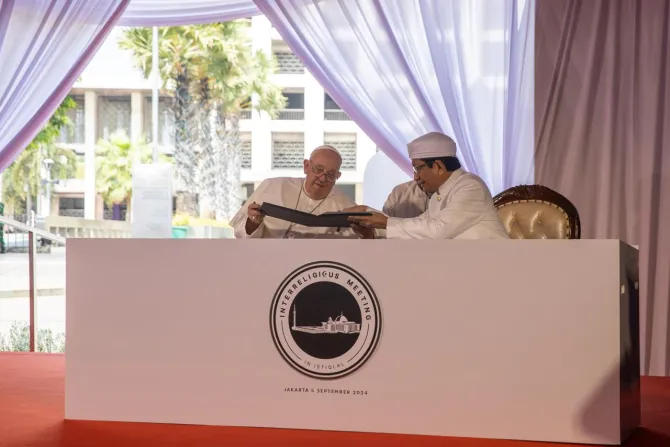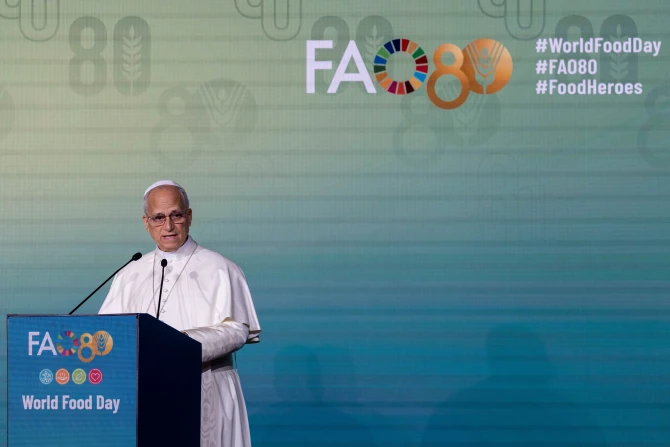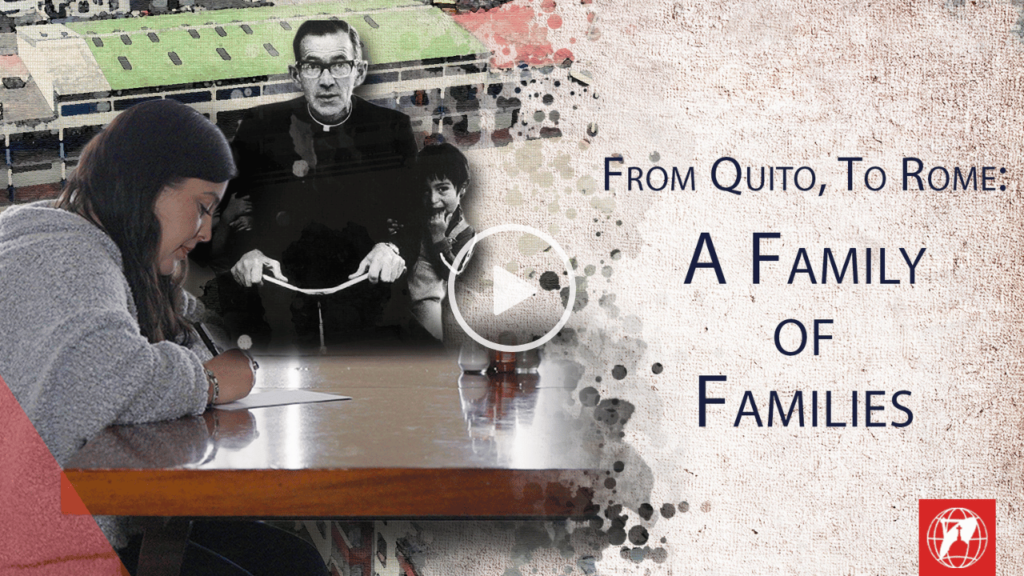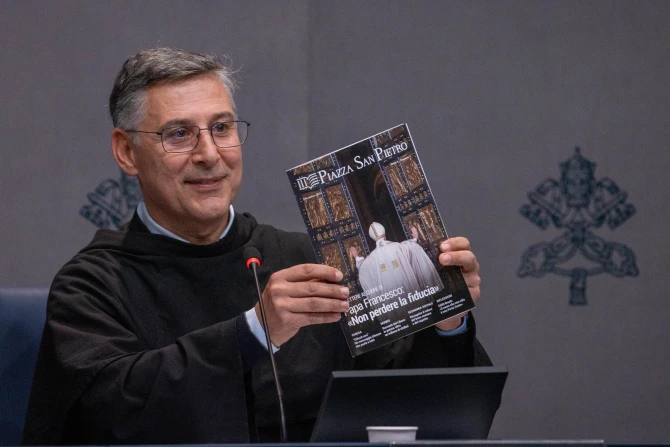Pope Francis visited the grounds of Southeast Asia’s largest mosque on Wednesday for an interfaith meeting in Indonesia, where he signed a joint declaration condemning religious-based violence with Muslim leader Grand Imam Nasaruddin Umar.
The Istiqlal Joint Declaration 2024 is titled “Fostering Religious Harmony for the Sake of Humanity.”
Named for Indonesia’s national Istiqlal Mosque, the document calls for religious leaders to work together to promote human dignity, interreligious dialogue, and environmental protection.
“The values shared by our religious traditions should be effectively promoted in order to defeat the culture of violence,” the declaration says.
“Our religious beliefs and rituals have a particular capacity to speak to the human heart and thus foster a deeper respect for human dignity.”

Pope Francis became the first pope to visit the grounds of Jakarta’s Istiqlal Mosque on Sept. 5. The massive mosque is among the largest in the world, accommodating up to 250,000 people at a time. John Paul II, who visited Indonesia in 1989, was the first pope to ever visit a mosque during his visit to Damascus in 2001.
According to the mosque’s grand imam, Istiqlal is second only in size to Mecca and Medina, and its influence extends to Indonesia’s roughly 242 million Muslims.
The interfaith meeting sought to promote religious tolerance and moderation in Indonesia, which faces challenges with the rise of hardline Islamist groups and instances of violence against Christians.
Speaking to representatives of Indonesia’s six officially recognized religions — Islam, Buddhism, Hinduism, Confucianism, Catholicism, and Protestantism — Pope Francis articulated his vision for interreligious dialogue.
“Sometimes we think that a meeting between religions is a matter of seeking common ground between different religious doctrines and beliefs no matter the cost. Such an approach, however, may end up dividing us, because the doctrines and dogmas of each religious experience are different,” the pope said.
“What really brings us closer is creating a connection in the midst of diversity, cultivating bonds of friendship, care and reciprocity.”
Pope Francis added that when religious leaders cultivate bonds, it enables them “to move forward together in pursuit of the same goals: defense of human dignity, the fight against poverty and the promotion of peace.”
Pope Francis arrived at the mosque through the Alfattah Gate, where Grand Imam Nasaruddin Umar warmly greeted him. The two leaders then proceeded to the newly constructed “Tunnel of Friendship,” an underground passage connecting the mosque to Jakarta’s Catholic Cathedral of Our Lady of the Assumption, built by the Indonesian government to foster dialogue and unity.
Before entering the “Tunnel of Friendship,” Pope Francis expressed his hope that it would become “a place of dialogue and encounter.”
Pope Francis told the grand imam, “I hope that our communities may increasingly be open to interreligious dialogue and be symbols of the peaceful coexistence that characterizes Indonesia.”

´The interfaith event took place in a red and white tent on the mosque grounds. It unfolded with a traditional Muslim welcome dance known as Marawis, followed by a brief chanting of a passage from the Quran by an Indonesian woman and a reading from the Gospel of Luke.
Representatives of the other four recognized religions stood in solidarity as the declaration was read aloud to participants in the tent.
The Istiqlal document identifies dehumanization and climate change as two serious crises facing the world today, emphasizing the shared responsibility of religious communities in tackling global challenges. It also affirms the need for interreligious dialogue to resolve “local, regional and international conflicts, especially those incited by the abuse of religion.”
The joint declaration at the Indonesian mosque was reminiscent of the Abu Dhabi declaration on “Human Fraternity” that Pope Francis signed with Ahmed el-Tayeb, Grand Imam of al-Azhar in the United Arab Emirates, when he became the first pope to visit the Arabian Peninsula in 2019.
On Thursday, the Indonesian grand imam underlined the significance of the meeting, pointing to Istiqlal Mosque’s influence across Indonesia, the world’s most populous Muslim country.
As Indonesia’s only state mosque, the Istiqlal Mosque is “expected to provide guidance to more than one million mosques and prayer rooms scattered throughout the islands of the Republic of Indonesia,” he explained.
“This mosque also seeks to promote religious tolerance and moderation in Indonesia,” the Muslim leader underlined.

In a moving gesture of solidarity and friendship at the closing of the event, the imam kissed Pope Francis on the head, while the pope kissed the grand imam’s hand and then touched it to his cheek.
Pope Francis will conclude the third day of his apostolic journey to Southeast Asia and Oceania by celebrating Holy Mass in Gelora Bung Karno Stadium in Jakarta. On Friday he is expected to depart Indonesia for Papua New Guinea.
This article was originally published on Catholic News Agency.







